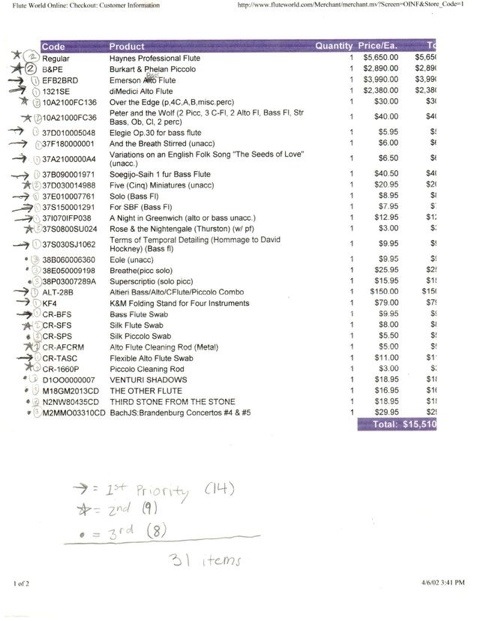As some of you may know, while I’m sure many do not, we have welcomed a new contributor to the blog. She has vast music experience and a love of sharing ideas and music. She, already, has been a major asset to our team, and is fully supportive of what we are doing now, and plan for the future. We couldn’t ask for anyone better, and I know she has a lot to share with us, and she will be able to provide some great insight into many areas of the flute world and education. She is also highly involved in the community, and remains active in everything she does. She is also a very close personal friend of mine who I’ve known for years, and was the first person I knew I had to bring along for this ride!
She wrote her first blog post titled:
Summer Music Camps: Dread or Delight?
Her next post is coming soon, and we can’t wait to share it with you. You can also find her bio on our Contributors Page, where we will keep updated contributor information for reference.
Here is her bio in her words:
“Euterpe’s Piccolo is a university instructor and performer and has been playing flute for longer than most of you have been alive. (insert joke about coming from a family of vocalists and vaudeville performers here!) With a strong performance background that includes orchestral, chamber, solo, contemporary, electronic, and pop playing, EP also has substantial experience as a stage manager for concerts and theatrical productions. Also a closet musicologist, EP has extensive experience as a researcher, writer, and editor of program notes. The valuable insight gained while working within these accidental careers as well as within the administration of a major symphony orchestra and of a music school have contributed immeasurably to EP’s understanding of the arts from all sides of the music stand.
EP’s students are encouraged to investigate many different approaches and techniques in order to discover their own identity and goals in playing the flute; not every approach works for every player thus making a caring and creative teacher imperative. Making concrete decisions about the different aspects of playing helps minimize “accidental” playing habits that may be inefficient or even become detrimental to playing. A helping of Alexander Technique and Body Mapping can help solve more than you think. In the long run, it is about the joy of making music and allowing the flute or piccolo to be the medium. To that end, EP regularly works with students of all ages and abilities, both privately and in master classes, to ignite their curiosity and to offer new ideas that will help them become a happy and fulfilled musician.
EP’s one foray into a jazz class and improvisation ended in bemused failure.”
We welcome Enturpe’s Piccolo (she may sometimes be called EP) to this project. She, with me, is also a contributing author, editor, confidant, moderator, and project manager. Her role is essential to the blog and will continue to play a large role. As the idea of a single person, it is great to share in it with someone else and work with a great person so dedicated to the idea and concept. We know she will do a lot, as she has already.
Please welcome Enturpe’s Piccolo as an author and moderator. *Applause*
-The Flute Elf

